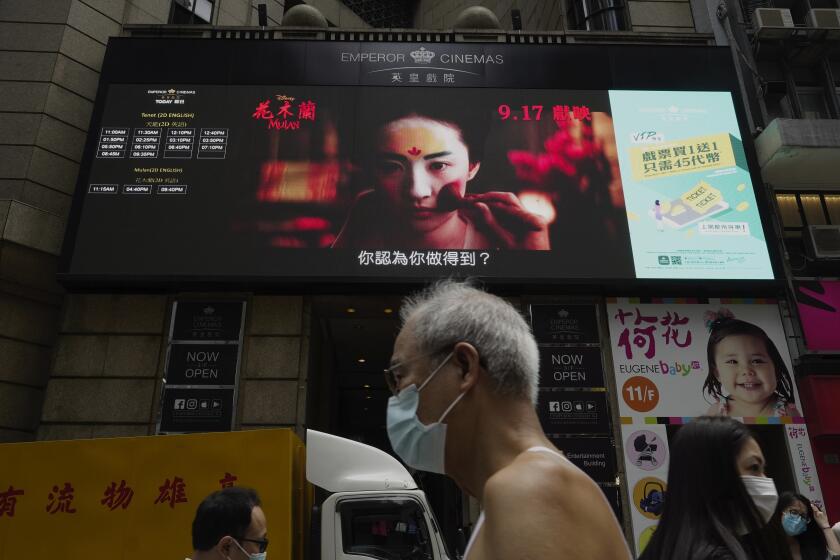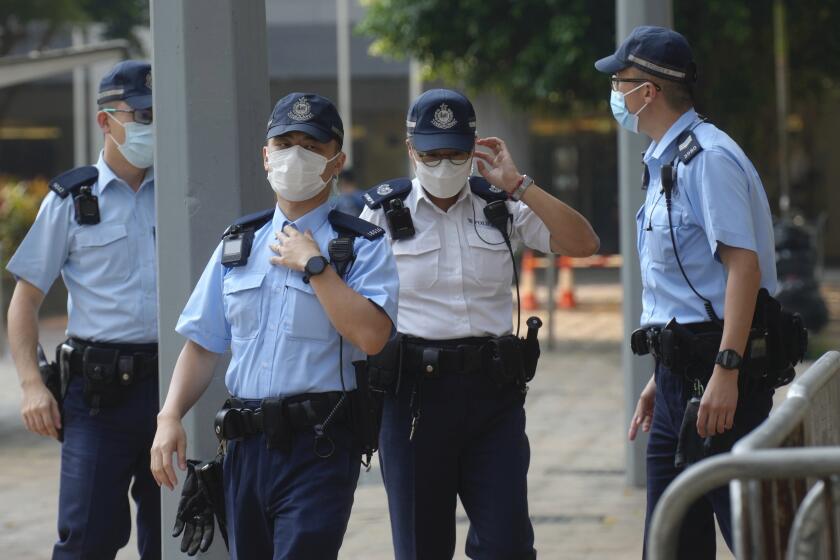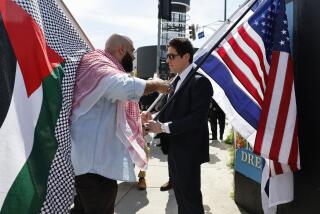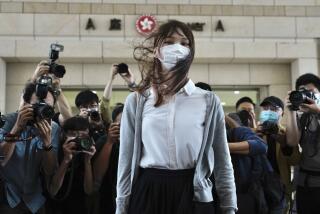Hong Kong pro-democracy group behind massive anti-government protests disbands
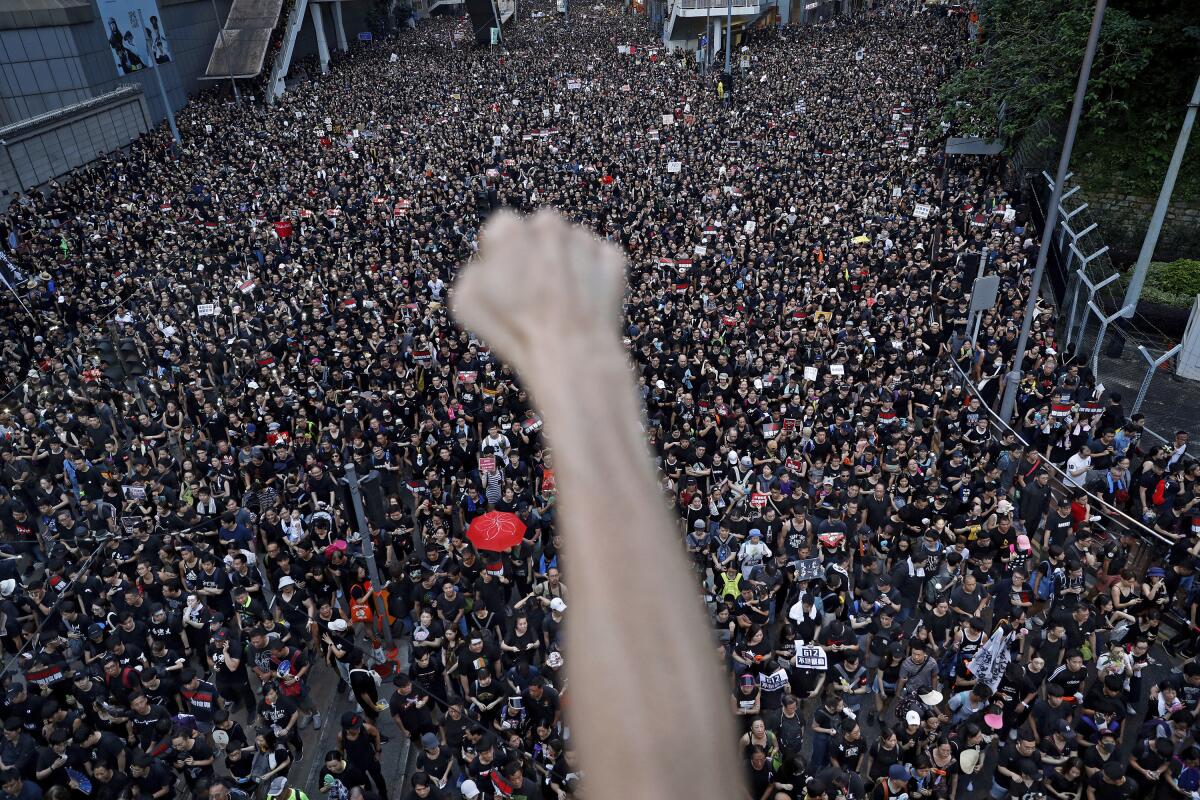
HONG KONG — A pro-democracy group that organized some of the biggest anti-government protests during months of political upheaval in Hong Kong in 2019 is dissolving.
The Hong Kong Civil Human Rights Front, made up of a number of member organizations, said Sunday that it could no longer operate. The decision comes as the group faces a police investigation for possible violation of the territory’s Beijing-imposed national security law, according to local media.
The group, which also organized an annual protest march marking Hong Kong’s reversion to Chinese control in 1997, is the largest to disband amid a sweeping crackdown on dissent in the city. Last week, the former British colony’s largest teachers union disbanded in light of what it said were drastic changes in the political environment.
Amnesty International expressed its concern over “the pattern of self-censorship seen this week.” The London-based organization said in a statement that the dissolution of the Hong Kong Civil Human Rights Front “signals a concerning domino effect, as Hong Kong’s draconian national security law has triggered an accelerating disappearance of independent civil society groups from the city.”
The crackdown follows Beijing’s imposition of the national security law on Hong Kong in June last year. The legislation outlaws secession, subversion, terrorism and foreign collusion, and has been used to arrest more than 100 pro-democracy figures since it took effect. The law also led to the closure of pro-democracy newspaper Apple Daily.
The crackdown has virtually silenced opposition voices in the territory — and drawn sanctions from the U.S. against Hong Kong and mainland Chinese government officials.
Hong Kong censors can now ban films deemed a danger to national security, prompting concerns in a city once known for its vibrant arts and film scene.
Former leaders of the Civil Human Rights Front, Figo Chan and Jimmy Sham, are in jail on charges related to their activism.
Although authorities have said the law would not be applied retroactively, a recent interview with a Hong Kong police commissioner suggested that the group was being investigated for holding rallies in the last year.
A statement Sunday by Hong Kong police said they would continue to spare no effort to investigate whether any organization or individuals violated the national security law and other local legislation. It said they would pursue individuals regardless of a group’s disbandment.
In April, police asked the group to hand over information on its members and activities as well as its funding.
Tong Ying-kit, 24, pleaded not guilty to inciting secession and terrorism during a protest last year in Hong Kong. He could face life in prison.
Since the national security law was enacted, many unions, associations and political organizations have disbanded amid concern that the law could be used to target them.
“Although the Civil Human Rights Front no longer exists today ... we believe that different groups will continue to stick to their ideals, who will not forget their original intentions, and continue to prop up civil society!” the group said in a statement.
More to Read
Sign up for Essential California
The most important California stories and recommendations in your inbox every morning.
You may occasionally receive promotional content from the Los Angeles Times.
